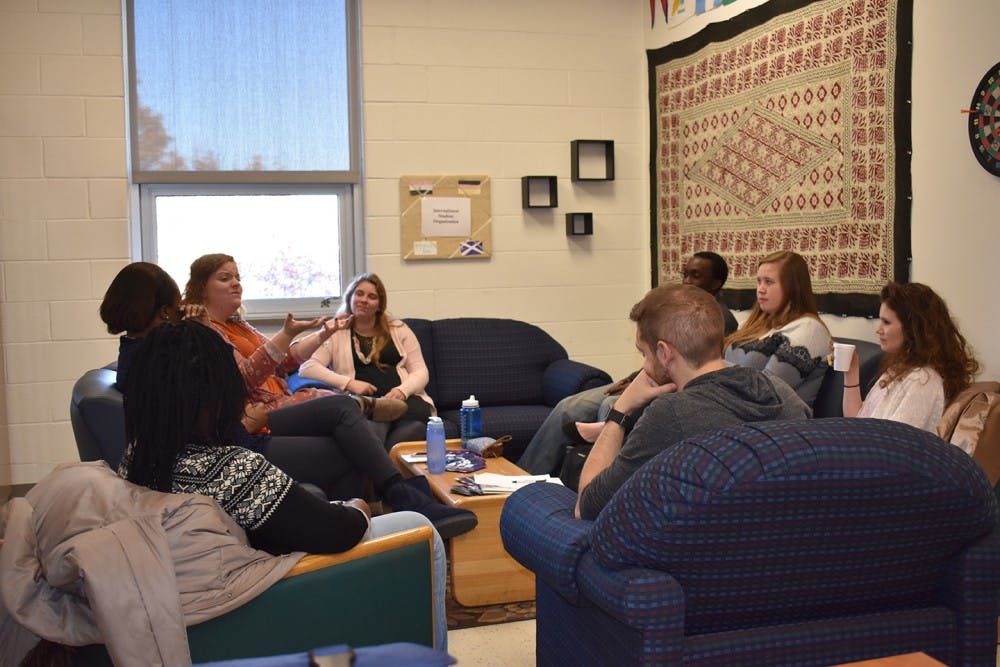It takes a village.
That is the concept behind Shippensburg University’s Global Village, a program geared toward international students that aims to make their respective transitions to the U.S. a little easier by connecting them with the SU campus community.
The group does this by hosting social events and offering a safe place for students to vent about day-to-day struggles or simply what is on their minds.
“Here, we try to have fun,” said Eghonghon Omiyi, a graduate assistant (GA) in the clinical mental health program and international student from Nigeria. “It’s not a formal gathering.”
The group takes this free-wheeling attitude into each of its hour-long, bi-weekly Wednesday meetings, opening the doors to Room 234 in the Ceddia Union Building, and providing refreshments, a place to sit and open ears.
Some talk about travel experiences and their dream jobs after school, while others focus on the upcoming international-foods potluck the group will be hosting.
Though the program is geared toward international students, domestic students are welcome, as well. According to Omiyi, one of the goals of the program is to connect international and domestic students because the adjustment to a new culture can be difficult.
“I remember when I first got here most of the friends I made were from Global Village,” said Omiyi. “You have the opportunity to make that connection in Global Village.”
For domestic student Hannah Rowe — who also happens to be a GA in the clinical mental health program — her participation has offered new insight. According to Rowe, the experiences of international students in the eyes of domestic students “are things we often don’t think about.”
Something as simple as a passing, “Hi, how are you doing?” may mean something totally different to people from other cultures.
“A lot of us, here in the United States, don’t actually stop to wait and actually listen to how someone is actually doing, whereas that is different in some other countries,” said Rowe. “So, that may come off as ‘they don’t really care’ if you’re not used to that kind of interaction, which is common here.”
Other disconnects do not necessarily lie in small talk, but rather are related to the differences between the way of life of two distinct cultures.
“A lot bothers us as students, like academics,” said Omiyi. “The style of teaching is different where I’m from.”
One of the main ways the group breaks down cultural barriers is through social events like going out to eat or hosting movie nights. All of this culminates in a feeling of inclusion.
“Just going out and putting myself out there can be scary,” said Omiyi, “but I did not have that happen because of the people [in Shippensburg] who are very friendly.”
Though, in many respects, taking the first steps toward connecting with a different culture may seem hard, to Rowe, the hard part is saying goodbye when friends graduate and move on.
“It’s sad when people leave, for sure, but we had people from all over that we got to connect with and get closer to. We made some really good friendships and we’re all Facebook friends, so hopefully we can stay in touch.”


The Slate welcomes thoughtful discussion on all of our stories, but please keep comments civil and on-topic. Read our full guidelines here.